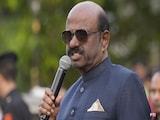In 1989, when people 'defected' to vote the Indian National Congress government out, leading to a minority National Front government, there were loud cheers of hope against electoral totalitarianism in Indian democracy. The incumbent Rajiv Gandhi government gave way to a ragtag coalition with no declaration of a definitive prime ministerial candidate. It was speculated that the longevity of this coalition would alter India's politics. The ninth Lok Sabha was seen as the culmination of what political scientist Francine R. Frankel called the 'gradual revolution'.
It was the moment when the Bharatiya Janata Party (BJP) made its commitment to 'Hindu secularism' clear, sharpening the biggest weapon in its armoury: nationalism. The timing could not have been better. Secessionist voices began to gain momentum in the erstwhile state of Jammu and Kashmir. Crafting a new national identity for India became the BJP's raison d'etre. Within half a century, they have made significant strides in this direction. As Prime Minister Narendra Modi starts his journey to his third consecutive term, let's examine how nationalism became the vehicle that conveyed to the BJP electoral support across religious, regional, and caste lines.
India's Colonial Past
When PM Modi began campaigning as the BJP's face in 2014, he understood well the emotive power of the idea of nationalism, and the windfall electoral gains that it can manifest. The power of nationalism at making or breaking government systems holds true across the world but is particularly keenly felt in the Indian subcontinent. Blame it on the uneasy legacy of colonialism. Nehruvian ideals were a manifestation of nationalism, as was Indira Gandhi's endeavour to liberate Bangladesh in the face of moral and material opposition from the Global West. The BJP was quick to make this playground its own, and slowly became the only player.
In the present context, the opposition parties - primarily the Congress - cannot be forgiven for ceding this space. When the BJP ratcheted its nationalism game up, the Opposition left the field on its ideological high horse. That's exactly what the BJP wanted: to be the only option. Every time the TINA (There Is No Alternative) factor in contemporary Indian politics is invoked, the BJP gloats a little more and probably laughs at the willing suspension of disbelief on its opponent's part.
The TINA factor exists not because there is a dearth of capable politicians in the Opposition but due to their lack of preparation in challenging the BJP juggernaut. Politics is a game where the opponent is met with and defeated on a common ground. The moment the Opposition decided to exit the field of nationalism, they lost the game. Banishing nationalism from their political imaginary, it is the Opposition that has strengthened the BJP.
Indian Voter And The Real Import Of 'Vikas'
Corruption, unemployment, inflation et al have been any electorate's refrain since independence. Political parties may go on pretending that elections are won or lost over these 'issues', but they know that it's not the case. All politicians would be getting their hands dirty in development work in their constituencies if that were indeed the reality. The Indian voter is quick to punish for the lack of it but does not necessarily reward 'Vikas'. When political parties begin to take the voter for granted, they are shown the door, and that's what keeps India's democracy-however fallible-dynamic and vibrant.
For most Indians, the vote is still an emotive issue. It is pointless, often counterproductive, to chide them for not making the 'correct' choice. The Opposition has been making this mistake at least since 2014. When will it learn that guilt-tripping the voter does not change electoral fortunes?
Assembly elections offer clear lessons. The BJP has lost states where murmurs of dissatisfaction over in-fighting, poor governance and overt corruption have not been drowned by loud rhetoric. Hard work done by the Opposition has paid off there. Regional parties, like the Trinamool Congress in West Bengal, have been far more prescient in tackling the BJP on its own terms. They have learnt the rules of the game and are not ceding any space.
Opposition Has Failed To Reclaim Space
Indian democracy, in institutional terms, has been evolving since independence, continuously growing wider and deeper. What Alexis Tocqueville said of American democracy can be easily applied to the Indian context: democracy is a socio-cultural tendency. It is, therefore, a little unfortunate that this socio-cultural tendency is left only at the mercy of the ruling party. That the BJP can casually fling accusations like 'anti-national' or 'desh ke gaddaar' at its critics is also a failure of the Opposition in some measure. Was bunching in the furthest Left corner while the Right-wing politics occupied the centre stage expedient? Why could they not stand firm on this ground in the middle?
Undermining the BJP in its use of a cocktail of nationalism's emotional appeal and ruthless electoral pragmatism has cost the Opposition two elections. Whether 2024 will be any different remains to be seen. A functional democratic nation needs a strong government and an equally strong Opposition.
(Nishtha Gautam is a Delhi-based author and academic)
Disclaimer: These are the personal opinions of the author.















